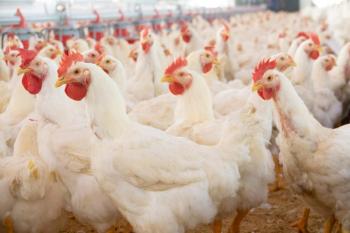
Journal Scan: Reptile wellness management
Improper care is the No. 1 reason reptiles are brought into the veterinary clinic.
Make sure this satiny parrot snake and its reptilian brethren thrive in captivity with veterinary help and guidance. (Getty Images)While reptiles have been kept in captivity for many years, improper care is still the No. 1 reason they are brought into the veterinary clinic. Poor husbandry can lead to metabolic disease, immune suppression or behavioral problems. Growing awareness of the importance of animal welfare in zoos and aquariums has also translated to a better understanding of the needs of captive reptiles as well.
In this article, the authors explain that the goals of environmental enrichment are to “promote species-appropriate behaviors, provide behavioral opportunities, and to provide animals with control of their environment.” In addition to proper husbandry techniques encompassing nutrition, lighting, temperature and housing, they share new information regarding environmental enrichment strategies to ensure the health and longevity of reptiles in captivity.
Reptile refreshments
Proper nutrition is integral to the health of captive reptiles. Not only does the caregiver need to identify and provide the correct diet choice based on natural diet and environment, the authors also discuss the ways in which food should be presented to promote proper nutrition. For example, food for snakes should be offered with tongs to encourage natural striking and coiling behavior. On the other hand, other species may be encouraged to eat by dragging prey through the enclosure, burying the prey item or using live fish or insects. Providing species-specific feeding strategies will also encourage activity, which can help with weight management as obesity is a common problem among captive reptiles.
Home sweet home
Housing is another area in which the authors discuss improvements that can help decrease stress and minimize the risk of immune suppression and disease. New research has found that not only are reptiles able to learn, but they are eager to engage in learning activities. Stimulatory environments result in more activity and exhibition of more natural behaviors. For example, numerous hiding, resting and activity areas should be provided within the enclosure.
Arboreal species, specifically, will benefit from tall enclosures that will allow room to climb. The more room that the reptile has to move around in, the less chance of a self-inflicted injury and obesity and the more likelihood for improved overall health. The authors note that group housing is often not recommended as many reptile species are solitary in the wild. This type of housing can often create stress and lead to aggression or even cannibalism.
Snake charming, er, training
Behavior training is another key component of enrichment as it will facilitate daily care and feeding as well as reduce the fear and stress associated with medical interventions. The authors discuss training methods that include teaching an animal how to enter a crate by using a food reward as well as target training and desensitization. The most common desensitization technique is handling, and the authors note that care should be taken to provide a cue that handling is about to happen so as not to damage the trust between the animal and the caregiver.
Additional guidance
In addition to tips regarding husbandry and enrichment practices, the authors also provide a list of online resources for husbandry information, as well as a table containing the nutritional content of select invertebrate prey items.
Great strides have been made in recent years with respect to the care of reptiles in captivity; however, the great variability among species highlights the need for education of not only reptile owners but also of the veterinarians who will be caring for them.
Wilkinson SL. Reptile wellness management. Vet Clin North Am Exot Anim Pract 2015;18(2):281-304.
Link to abstract:
Newsletter
From exam room tips to practice management insights, get trusted veterinary news delivered straight to your inbox—subscribe to dvm360.






